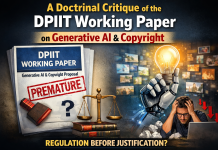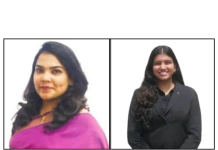We are pleased to bring our next guest post by Gaurav Chourasia who is currently a 3rd-year law student at Hidayatullah National Law University, Raipur and is keenly interested in IPR, Media & Entertainment laws, and Sports laws.
In the Entertainment Industry, disputes related to copyright infringement are very common but there are certain extraordinary cases where the celebrity is sued for copyright infringement and that too for uploading his/her own images in social media. In the latest case, Singer-Actress Jennifer Lopez has been sued by a photographer for copyright infringement.[i] In 2017, Lopez uploaded her photographs on Instagram after which the suit has been filed for using photographs without license or permission. This is not the first time a celebrity has been sued for uploading his/her own images. Earlier too, many celebrities such as Gigi Hadid,[ii] Liam Hemsworth,[iii] Khloe Kardashian,[iv] etc. have been sued for copyright infringement.
In the majority of cases, there is a common link i.e. the celebrities are sued by the Paparazzi. The Paparazzi are photographers who follow famous people around, hoping to take interesting or shocking photographs of them so that they can sell to a newspaper.[v] There is a rise in this trend where the paparazzi are contesting legal battle against celebrities for uploading their own photographs in social media. The biggest paradox about these paparazzi is that the recent copyright cases highlighting an interesting intersection of two significant tenets of law : a celebrity’s right of publicity in their own image and a photographer’s right to copyright their artistic work.[vi] In these intersections, the current copyright laws are in favor of the paparazzo i.e. a photographer’s right to copyright their artistic work.
It is a well-settled law that photographic images are subjected to copyright. Section 106 of the American Copyright law grants “a bundle of exclusive rights to the owner of the copyright,” including the rights “to publish, copy, and distribute the owners’ copyrighted work”.[vii] There are precedents where it has been held that “photographs that are meant to be viewed by the public for informative and aesthetic purposes are generally creative in nature.”[viii] Thus, the photographer has a copyright over the images which he has captured. It is an old rule that just owning intellectual property rights does not generate monetary benefits, it must be exploited. For economic benefits, owners provide license or assignment to lawfully exploit their copyrighted work. License is a “permission to use a copyrighted work in a particular specified manner.”[ix] The use of copyrighted work without the consent of the owner amounts to copyright infringement.[x]
In the present set of facts, Jennifer Lopez has been accused of copyright infringement by the photographer Steve Sands. Lopez uploaded her close-up portrait without the permission of New York Photographer. The Lawsuit is filed in Manhattan Federal court on 20th April 2020. According to the lawsuit, the photographs have been used without any license or permission from the photographer. Also, Lopez and her production company Nuyorican Productions is accused of using the photograph, which was posted on 22 June 2017 and liked more than 656,000 times, to “promote their brand” without proper permission or compensation.[xi] The lawsuit concludes with the claim that the photographer is “entitled to statutory damages up to $150,000 per work infringed.” This is not the first time Jennifer Lopez has been accused of copyright infringement. In 2019, Paparazzi agency Splash News and Picture Agency filed a federal lawsuit against Lopez for $150,000 over a picture of the singer holding hands with Alex Rodriguez in New York City, which she shared with her Instagram account in 2017. Lawyer Richard Liebowitz, who filed the present lawsuit, has said that “These incidents have become a classic case of celebrities using photographers’ photographs without permission to brand themselves on social media.”
In order to establish a claim of copyright infringement, a plaintiff with valid copyright must demonstrate : (1) the defendant has actually copied the plaintiff’s work;[xii] and (2) the copying is illegal because a substantial similarity exists between the defendant’s work and the protectable elements of the plaintiff’s work.[xiii] Moreover, To survive a motion to dismiss based on failure to state a claim, a plaintiff bringing a copyright infringement claim must generally plead (1) the specific original works which are the subject of the copyright claim; (2) that plaintiff owns the copyrights in those works; (3) that the copyrights were registered in accordance with 17 U.S.C. § 411; and (4) the acts by which and the time period during which the defendant infringed the copy.[xiv] In Xclusive-Lee, Inc. v. Hadid,[xv] Gigi Hadid’s copyright infringement case was dismissed on the ground that the photographer’s copyright registration of the photograph is pending in the copyright office. Thus, the photographer who has filed the lawsuit must satisfy all these ingredients without which the case will be dismissed by the court.
It should be noted that fair use is one of the exceptions to copyright infringement.[xvi] However, there are some factors which ensure that there has been a fair use of the copyrighted work such as- (1.) the purpose and character of the use, including whether such use is of a commercial nature or is for non-profit educational purposes and (2.) the effect of the use upon the potential market for or value of the copyrighted work. Also, in the case of Nunez v. Caribbean Int’l News Corp,[xvii] the court deduced some parameters to measure copyright infringement by – (i) “the extent of market harm caused by the particular actions of the alleged infringer”; and (ii) “whether unrestricted and widespread conduct of the sort engaged in by the defendant would result in a substantially adverse impact on the potential market.” In the present case, the use of photographs is commercial in nature as there is the promotion of a brand in social media by the celebrity and there has been a loss to the photographer as the copyrighted work has been used without permission or license. However, the suit is currently pending in the Manhattan Federal court.
These recent cases of Paparazzi vs. Celebrities have left many doors open for the legal aspects related to copyright infringement. There is hardly any case similar to this particular incident as per the Indian scenario but the legal suits can be filed in the future. There are various sections of the Indian Copyright Act related to ownership,[xviii] licensing,[xix] registration,[xx] as well as infringement[xxi] of the copyrighted work. Instagram also has a private account feature for the personal use of photographs. As per Indian copyright law, the use of photographs for “personal use” can come within the ambit of fair use under section 52.[xxii] But, Celebrities have a business account and not the private account so the fair use argument becomes flawed. Also, Instagram is very strict on copyright issues and according to their guideline, “You can’t post private or confidential information or do anything that violates someone else’s rights, including intellectual property”.[xxiii] Moreover, Instagram immediately deletes the post which involves the controversy of copyright infringement. Therefore, it will be didactic to celebrities not to upload photographs without permission or license from the real owner i.e. the photographer, studio, or other media agencies. It will be better to be sustainable to the hard work of the copyrighter rather than wasting time-fighting unnecessary and avoidable legal suits.
End Notes:
[i] https://uproxx.com/pop/jennifer-lopez-instagram-sued-lawsuit/
[ii] https://www.esquireme.com/content/38996-gigi-hadid-sued-for-posting-paparazzi-photo-of-ex-zayn-malik
[iii] https://www.usatoday.com/story/entertainment/celebrities/2019/12/16/liam-hemsworth-ariana-grande-jlo-and-more-celebs-sued-paparazzi/2670988001/
[iv] https://variety.com/2017/digital/news/khloe-kardashian-instagram-sued-lawsuit-xposure-photos-unlicensed-1202401328/
[v] https://www.collinsdictionary.com/dictionary/english/paparazzi
[vi] https://www.ipwatchdog.com/2019/10/30/keeping-copyright-infringement-copyright-celebrities-paparazzi-social-media/id=115456/
[vii] Harper & Row Publishers, Inc. v. Nation Enters., 471 U.S. 539, 546-47, 105 S.Ct. 2218, 85 L.Ed.2d 588 (1985)
[viii] Kelly, 336 F.3d at 820
[ix] Saxelbye Architects, Inc. v. First Citizens Bank & Tr. Co., 1997 WL 702290, at *3 (4th Cir. Nov. 3, 1997)
[x] Section 105, American Copyright Act ,1976
[xi] https://www.independent.co.uk/life-style/jennifer-lopez-sued-copyright-infringement-photographer-instagram-lawsuit-a9477236.html
[xii] Peter F. Gaito Architecture, LLC v. Simone Dev. Corp., 602 F.3d 57, 63 (2d Cir. 2010)
[xiii] Twin Peaks Prods., Inc. v. Publ’ns Int’l, Ltd., 996 F.2d 1366, 1372 (2d Cir. 1993)
[xiv] Wolo Mfg. Corp. v. ABC Corp., 349 F.Supp.3d 176, 202 (E.D.N.Y. 2018)
[xv] 1:19-cv-00520-PKC-CLP (E.D.N.Y. 2019)
[xvi] § 107 of the American Copyright Act, 1976
[xvii] 235 F.3d 18, 24 (1st Cir. 2000)
[xviii] Section 17 of Copyright Act,1957
[xix] Section 30 of Copyright Act,1957
[xx] Section 44 of Copyright Act,1957
[xxi] Section 51 of Copyright Act,1957
[xxii] Section 52(1)(a) in the Copyright Act, 1957
[xxiii] Instagram Terms of Use, “How You Can’t Use Instagram”













Comments are closed.